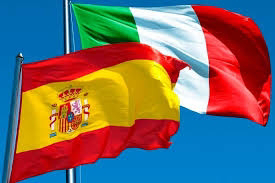Recent European Union (EU) tensions have exposed deep-seated political and historical fault lines. Italy and Spain's vocal opposition to the EU's plan to send observers and diplomats to Somaliland, followed by their resistance to congratulating Somaliland's newly elected president, reveal more than diplomatic disagreements—they highlight complex legacies of colonialism, nationalism, and contemporary geopolitics.
Historical Shadows: Italy’s Role
Italy’s antagonism toward Somaliland’s self-determination is deeply rooted in its colonial past. As a former colonial ruler in southern Somalia, Italy significantly shaped modern Somali nationalism. During the early 20th century, Mussolini's fascist regime promoted a vision of a "Greater Somalia," aiming to unite various Somali-speaking territories under one flag. This legacy of irredentism remains influential today, as Somali unionist narratives often draw on these historical ideals.
Italy’s continued support for Somali unionism reflects a lingering colonial mindset that prioritises territorial integrity over the self-determination of historically marginalised regions. Somaliland, which declared independence from Somalia in 1991, challenges this narrative by asserting a distinct identity and functioning democratic system separate from the often chaotic politics of Mogadishu. For Italy, acknowledging Somaliland would undermine its long-standing influence and complicate its strategic interests in the Horn of Africa.
Spain’s Domestic Parallels
Spain’s opposition, meanwhile, stems from its internal dynamics. The Catalan independence movement remains a potent force, with many in Catalonia drawing parallels between their struggle and other secessionist movements worldwide. By opposing Somaliland's recognition, Spain signals its commitment to territorial unity—a message directed as much at domestic audiences as international partners.
However, this stance places Spain in a contradictory position. While it supports self-determination for some regions globally, such as Western Sahara, it resists similar claims closer to home. This inconsistency exposes the selective application of principles in international diplomacy, driven more by self-interest than a genuine commitment to democratic values or human rights.
The Broader EU Context
The EU's attempt to engage with Somaliland reflects a pragmatic recognition of its stability and democratic progress. Somaliland is a rare success story in a region marked by conflict and authoritarianism. Sending observers and congratulating its leadership would have been a significant step toward legitimising its status and encouraging further democratic consolidation.
However, Italy and Spain’s blockade reveals the challenges of forming a coherent EU foreign policy. The EU prides itself on promoting democracy and human rights, but the divergent interests of member states often constrain its actions. This episode underscores how historical legacies and domestic politics undermine collective action, even when aligned with the EU's stated principles.
Conclusion: The Price of Inconsistency
The Somaliland controversy highlights the enduring influence of colonial history and domestic politics on international diplomacy. Italy and Spain's opposition is not just a diplomatic manoeuvre but a reflection of unresolved historical traumas and contemporary anxieties. For the EU, this incident raises critical questions about its credibility as a promoter of democracy and self-determination. If the Union cannot reconcile its internal divisions, it risks undermining its moral authority and strategic influence on the global stage.

No comments:
Post a Comment